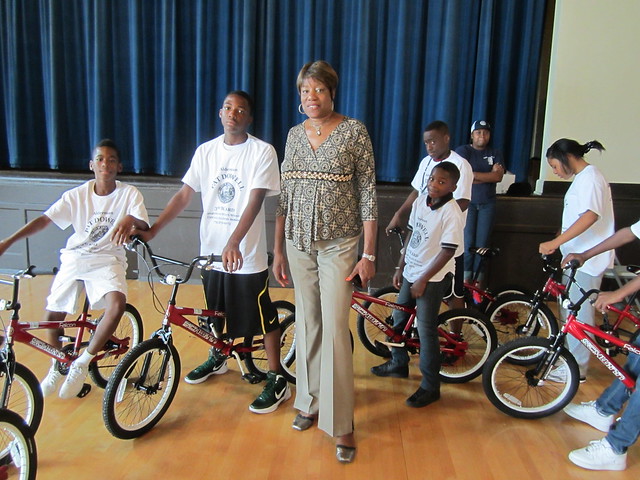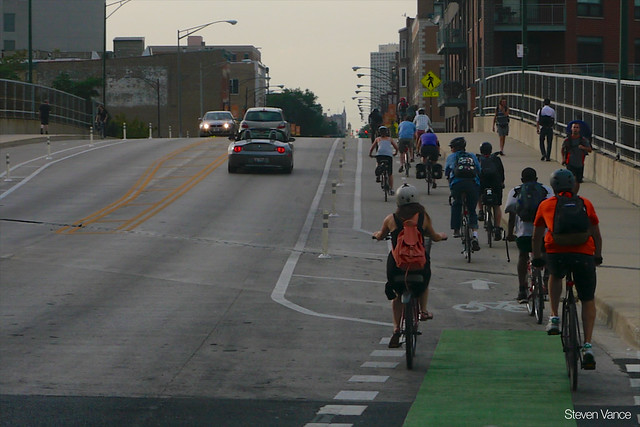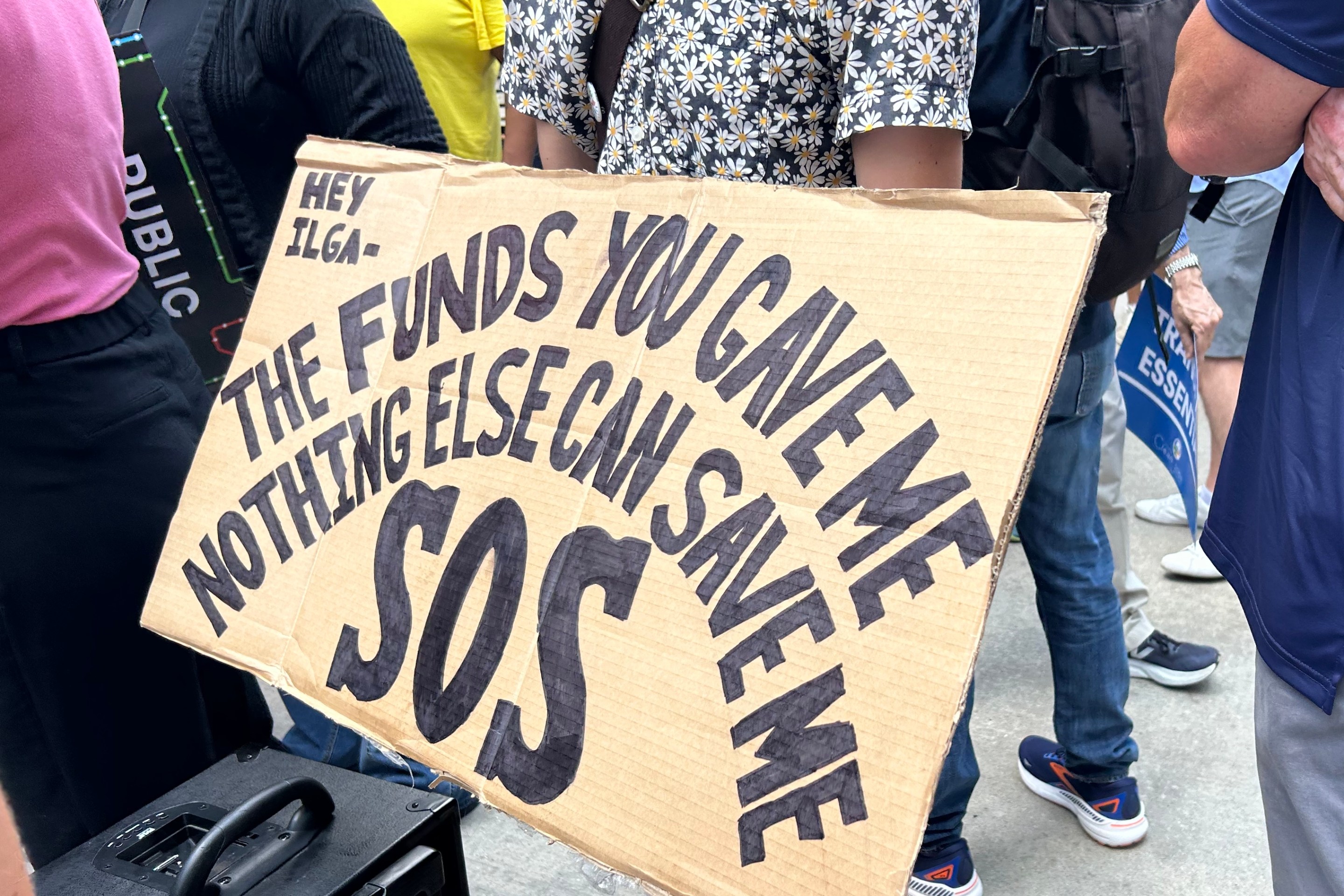Alderman Patricia Dowell (3rd, Bronzeville, South Loop) floated the idea yesterday that Mayor Rahm Emanuel’s budget proposal to raise the cable television tax could be eliminated by charging a licensing fee to ride a bicycle instead. She pegged the fee at about $25 a year and said one would have to complete one hour of classroom education to receive the license to ride a bicycle.
This idea notwithstanding, Dowell has a pretty good, though sparse, record on bike issues. She mediated a situation between the Chicago Department of Transportation and Bronzeville church leaders that ensured King Drive received upgraded bike lanes instead of leaving them as-is. After returning from a trip to cities in Denmark -- sponsored by Bikes Belong -- she started a program with CDOT to teach young people bicycling safety.
But Dowell’s bike license proposal doesn't make any sense. There are a few reasons almost all major cities don't license bikes: It would discourage people from using a healthy, affordable mode of transport, and it would cost more to administer and enforce than it would generate in fees.
A bike license fee that's actually enforced would strangle Chicago's budding bike culture and be completely at odds with the city's policy goals. The City Council adopted the Bike 2015 Plan seven years ago stating two overarching goals, to reduce the number of injuries by 50 percent from 2006 levels and to "increase bicycle use, so that 5 percent of all trips less than five miles are by bicycle." Licensing would run counter to both.
Anyone with a bike would have to visit a website, city clerk's office, or police station to pay the fee and obtain a license. Enforcing the license requirement -- stopping and fining people riding without one -- would create another barrier to bicycling. Every new barrier reduces the number of people bicycling, which in turn increases the injury rate, because the "safety in numbers" effect would diminish. Goodbye, goals.
Cities that operated licensing schemes for decades have abandoned their programs, citing low enforcement that fails to raise revenue to pay for the program. Ottawa, Ontario, found "limited benefits and significant challenges" and abandoned its proposal. Toronto abolished its 22-year bike licensing program in 1957 and the City Council declined to implement new programs three times since, citing the difficulty of maintaining a current database and licensing children, and noting that "licensing in and of itself does not change the behaviour of cyclists who are disobeying traffic laws." As Active Transportation Alliance director Ron Burke told DNAinfo, "The cost to implement it would actually exceed the revenue generated."
Dowell also views her proposal in terms of fairness. "If we have to register our cars, bikes ought to be registered as well," she said.
But driver's licenses and license plates are necessary because driving is complex and, all too often, deadly. Someone operating a multi-ton vehicle capable of high speeds needs a lot of training in how to use the machine, and given the scale of damage inflicted by cars and drivers, an elaborate system of licensing and insurance makes sense. Since a bicycle doesn't kill people and in fact prolongs the rider's life, a license is counterproductive.
That's not to say some form of education can't help. Most residents in the Netherlands and Germany, where some cities have bike mode-share over 30 percent, receive bicycle training in elementary school. Those and other European countries also have much stricter driver and car roadworthiness testing than the United States, including detailed instruction on how to drive safely near people walking and bicycling, making them global leaders in road safety.
Taxes and vehicle registration fees are needed to help pay for the costs of maintaining roads, but people who bike already do pay for roads through other forms of taxation, and bicycling inflicts almost no wear-and-tear on roadways. In fact, since road degradation is proportional to the fourth power of a vehicle’s weight, every time someone bikes instead of drives a car, they help lower future maintenance costs. Discouraging people from biking again makes no fiscal sense.
Dowell's proposal got some support from Alderman Anthony Beale (9th) -- who called it thinking outside the box -- but none from the mayor, who said, "I surely don't want police involved in policing whether you bought a bike license."
And Dowell herself said she hasn't "thought it through completely." Maybe she doesn't expect to win any arguments about this plan, but her proposal has already proven a great strategy to get media attention.






